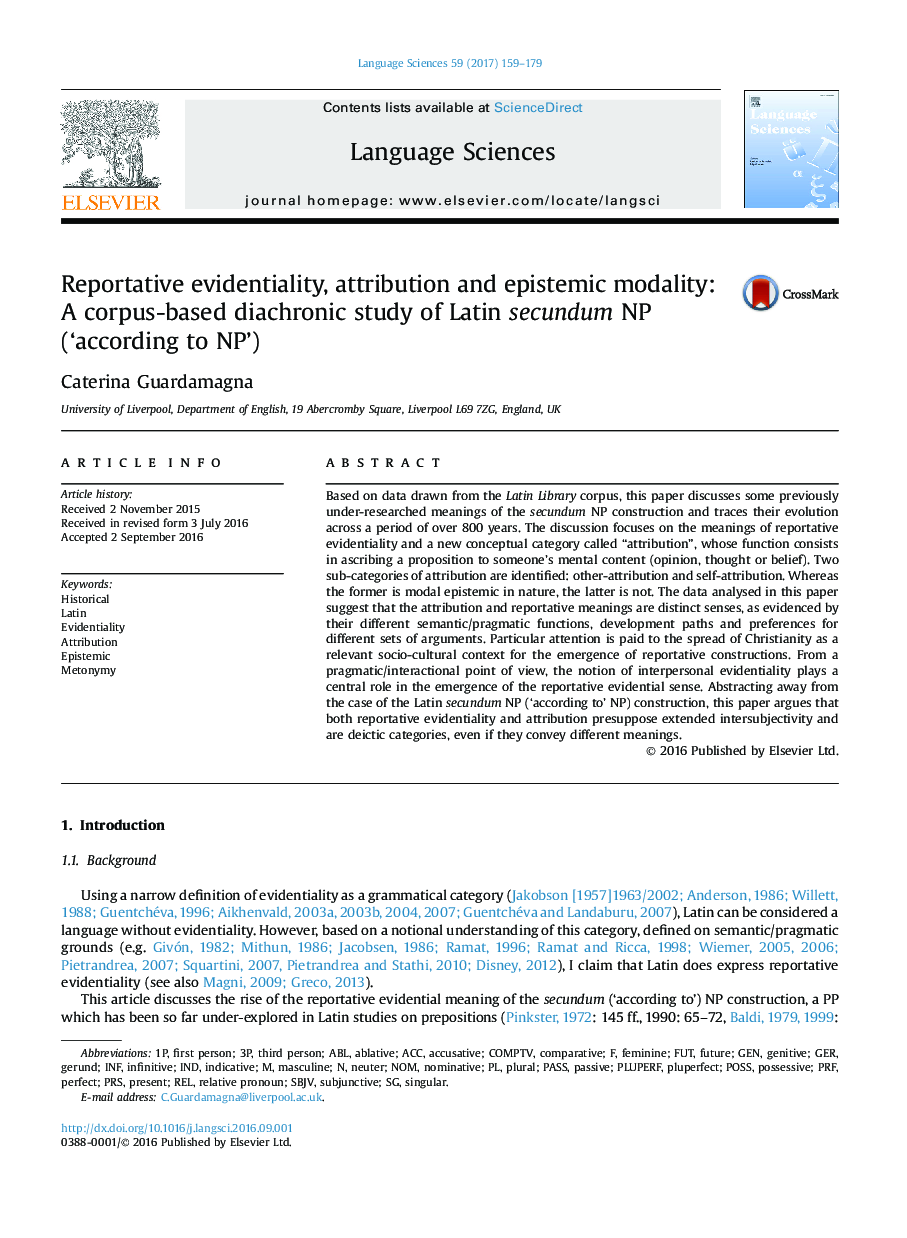| Article ID | Journal | Published Year | Pages | File Type |
|---|---|---|---|---|
| 7533898 | Language Sciences | 2017 | 21 Pages |
Abstract
Based on data drawn from the Latin Library corpus, this paper discusses some previously under-researched meanings of the secundum NP construction and traces their evolution across a period of over 800 years. The discussion focuses on the meanings of reportative evidentiality and a new conceptual category called “attribution”, whose function consists in ascribing a proposition to someone's mental content (opinion, thought or belief). Two sub-categories of attribution are identified: other-attribution and self-attribution. Whereas the former is modal epistemic in nature, the latter is not. The data analysed in this paper suggest that the attribution and reportative meanings are distinct senses, as evidenced by their different semantic/pragmatic functions, development paths and preferences for different sets of arguments. Particular attention is paid to the spread of Christianity as a relevant socio-cultural context for the emergence of reportative constructions. From a pragmatic/interactional point of view, the notion of interpersonal evidentiality plays a central role in the emergence of the reportative evidential sense. ing away from the case of the Latin secundum NP ('according to' NP) construction, this paper argues that both reportative evidentiality and attribution presuppose extended intersubjectivity and are deictic categories, even if they convey different meanings.
Keywords
Related Topics
Social Sciences and Humanities
Arts and Humanities
Language and Linguistics
Authors
Caterina Guardamagna,
